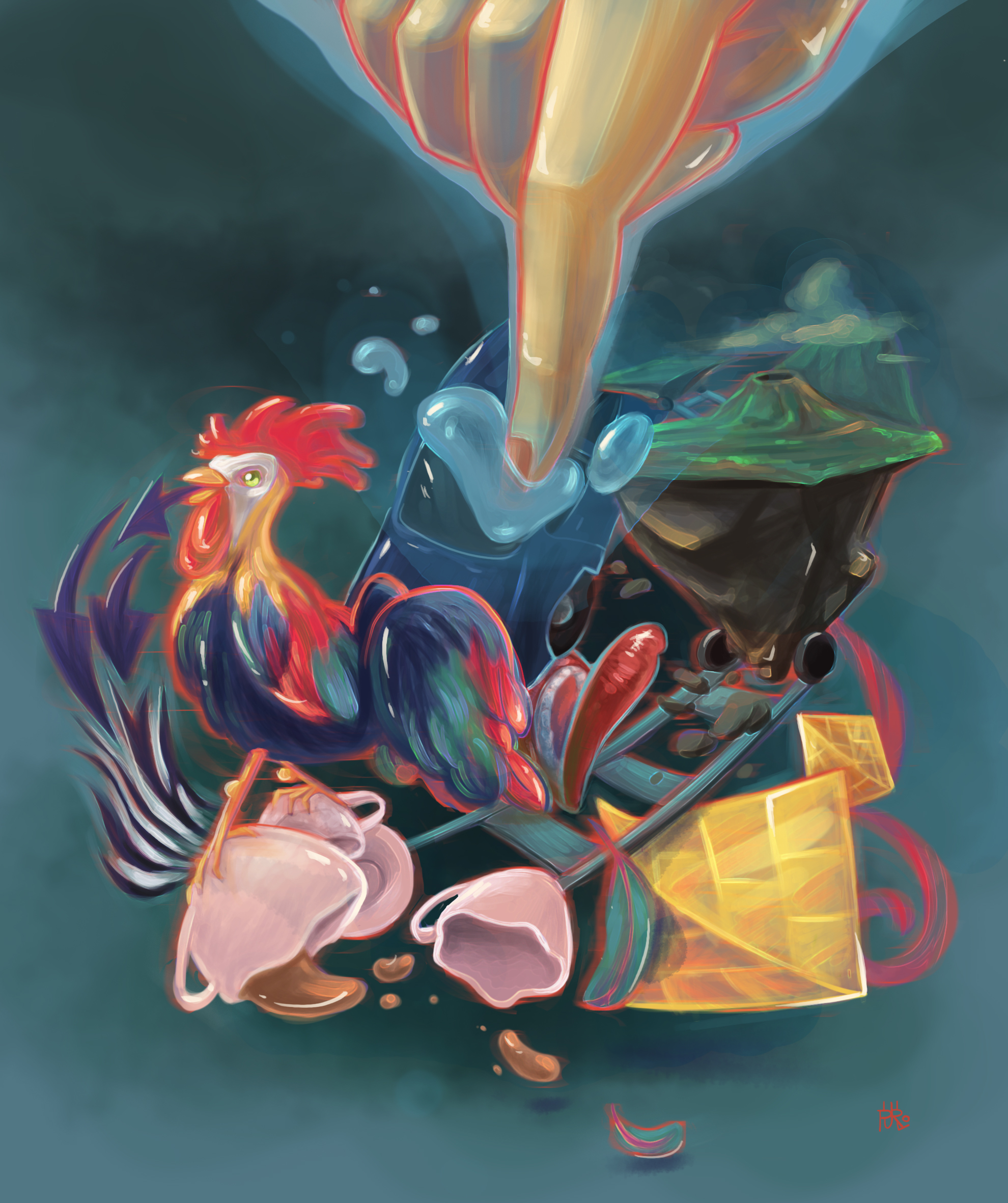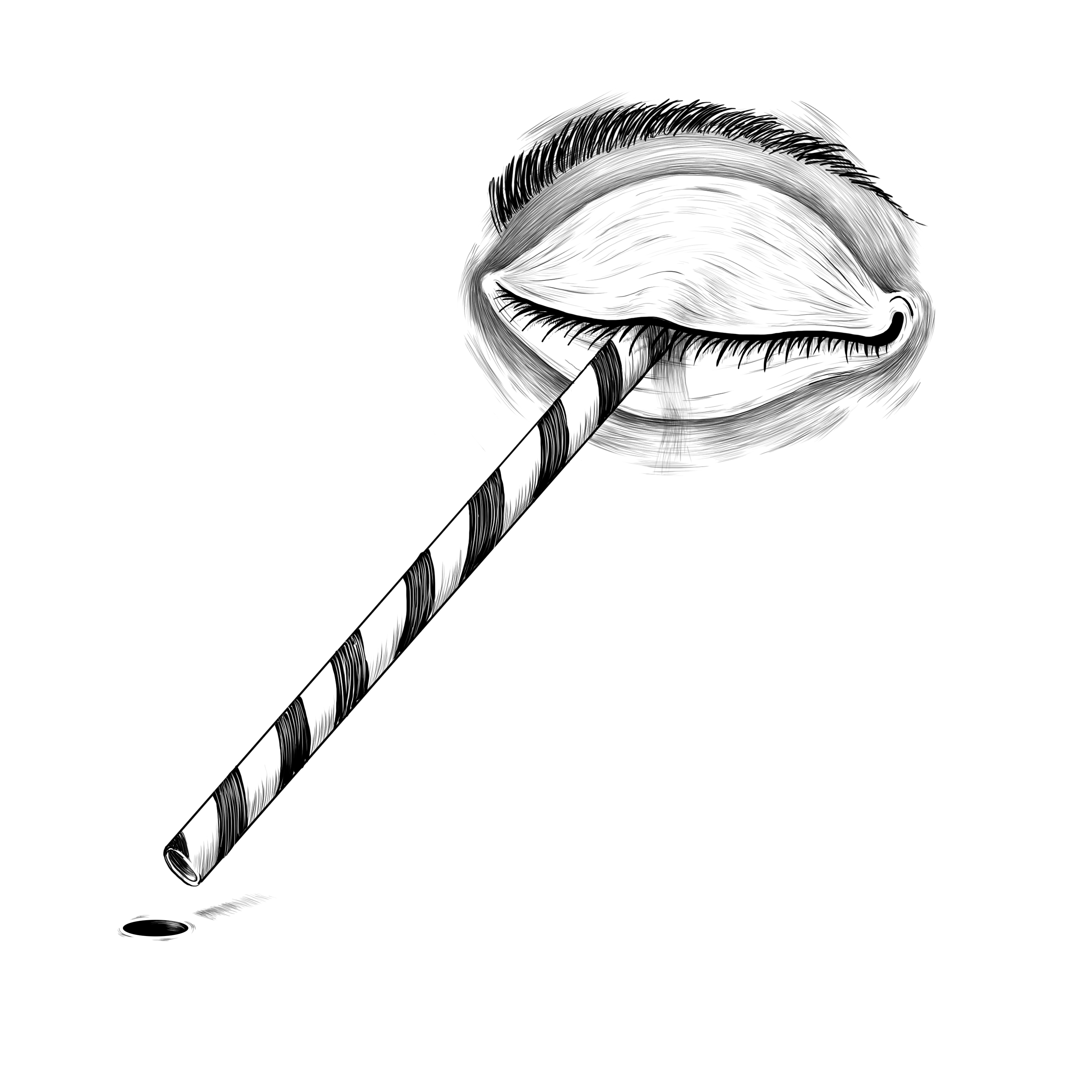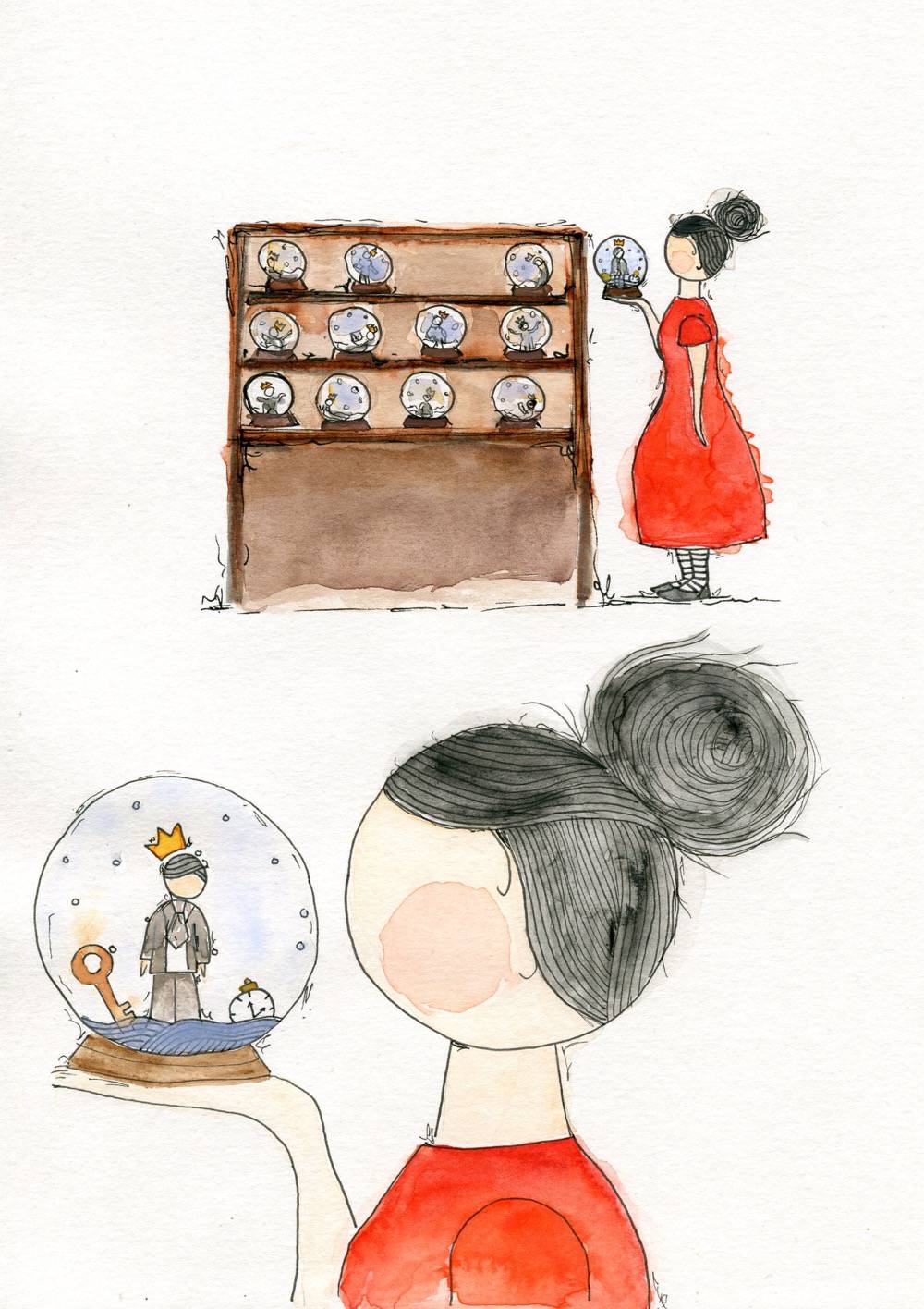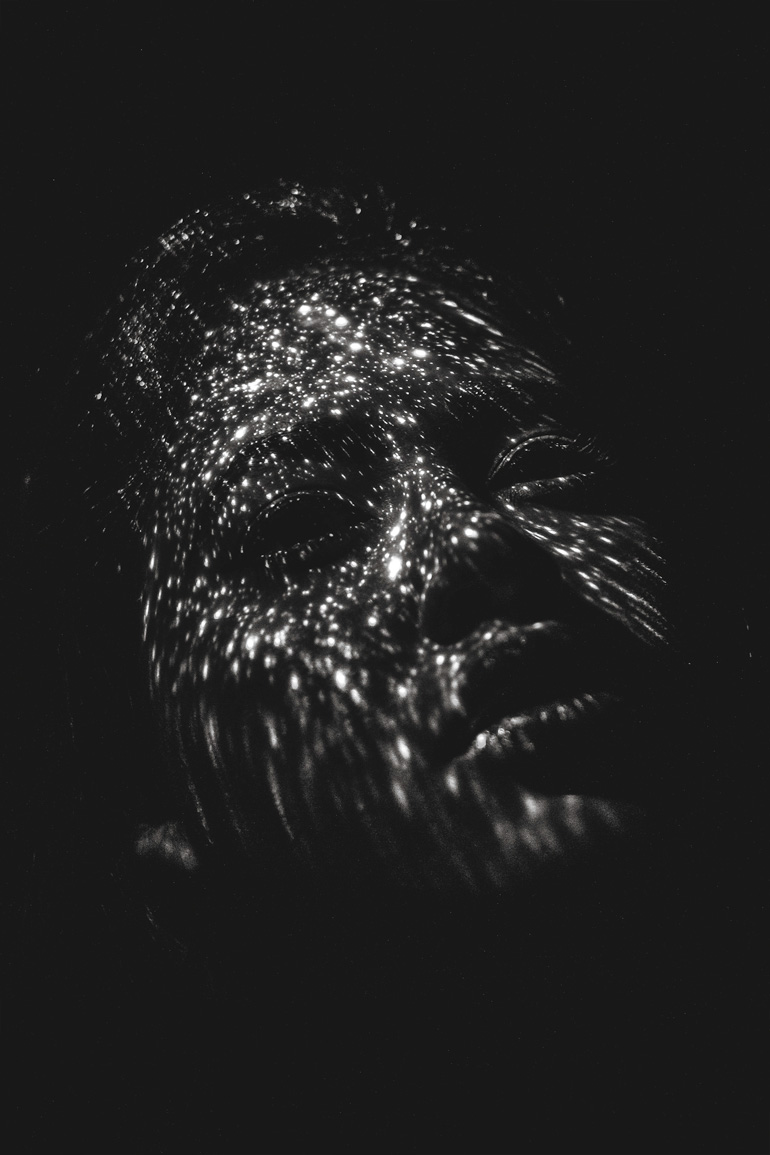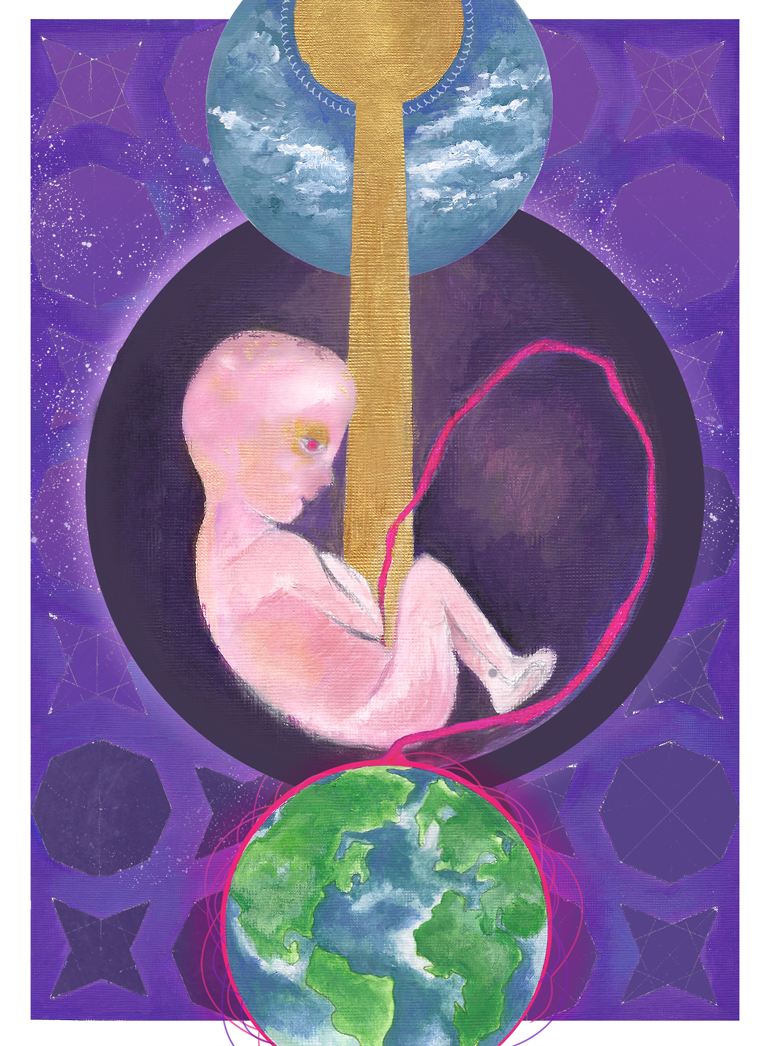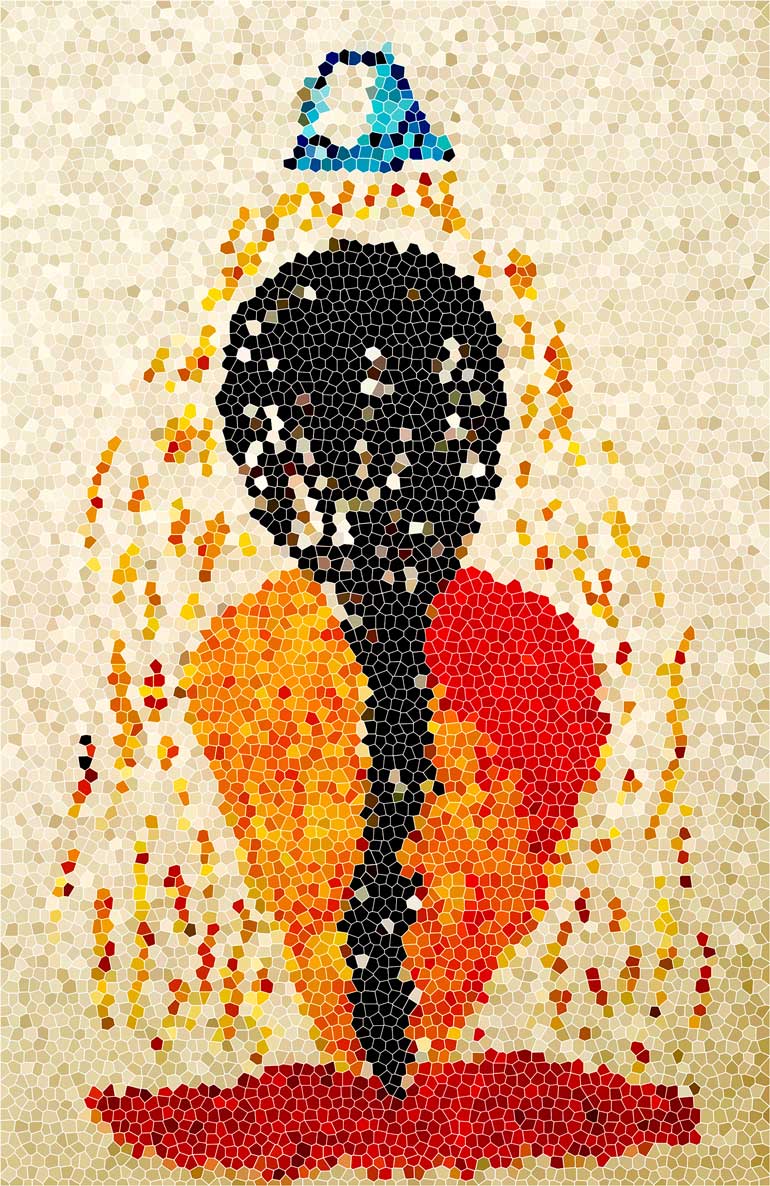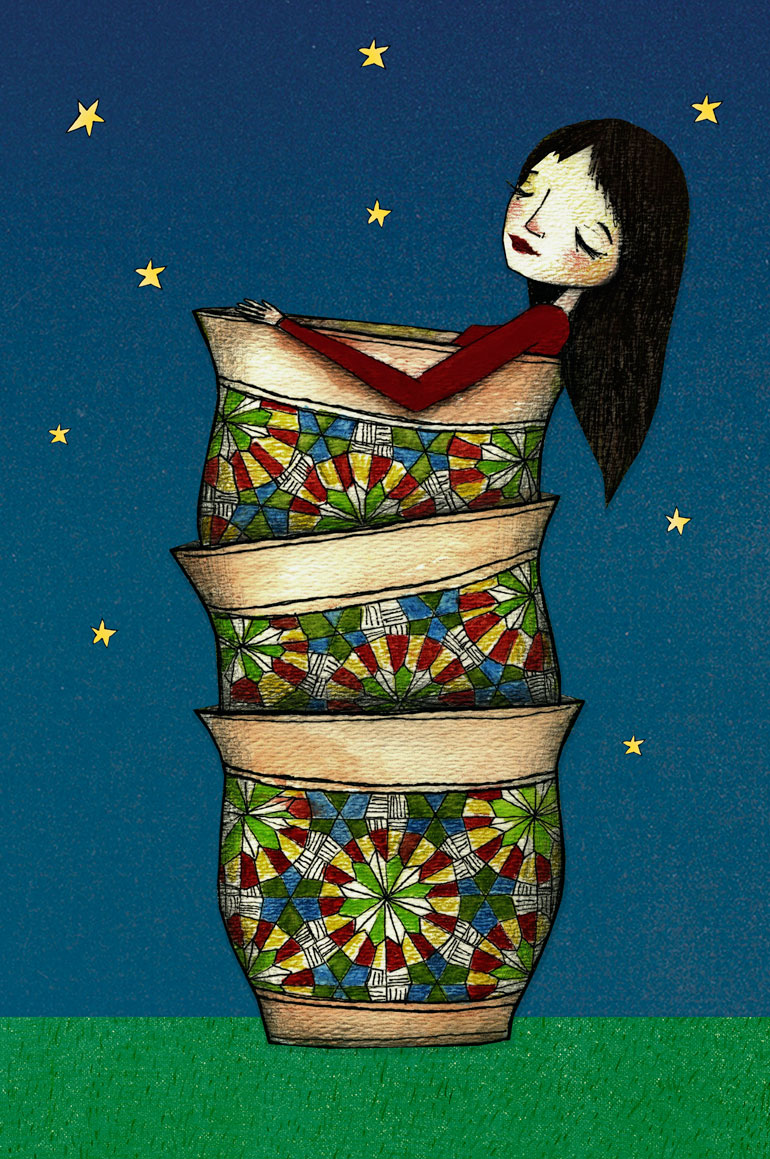When Eid repeats in Nightmares
I’m in the London underground and the train stops at Shepherd’s Bush. I’m scared. I’m not familiar with London, but in the dream I am. I walk out and I see grey lambs, mammoths and roosters marching their way out the station. It’s stifling and packed and I get lost in the midst of their wool, feathers and stale scent. The animals run at a heightened speed and I can’t seem to follow them to the exit. Perhaps they are fitter. They use their legs more than I do. I hear the bleating of lambs and I bleat with them. My legs transform from pale skin to wool. They become as heavy as tires.
Bah bah, I ask one lamb for directions. Perhaps if I get along with them, I’ll be able to run as fast. My iPod stops playing the song I was listening to, so I sing the lyrics myself. I transport from the station to a dinner table. It’s Eid now, and I’m served a generous amount of lamb. I hear a continuous sound of a woman singing the very song that was on my playlist. It’s the sound of my own voice in my head. “This is a gift, it comes with a price. Who is the lamb and who is the knife?”
Cinderella Uses A4 Paper Too
He writes down the number 11 on a piece of A4 paper, draws an arrow and scribbles down another number, 4.
“You will have the driver from 11 AM to 4 PM. I think that’s quite reasonable.” She listens carefully, wanting to make sure she doesn’t say anything wrong given that she and her father had only recently reconciled. She doesn’t say anything and lets him explain further.
“He will drop your brother and his wife off at work at 8 AM and return for them at 5 PM.”
“But Faisal drives,” she verifies. She’s still arranging her thoughts while answering, and adds information her father is already aware of. She goes on:
“They work in the same office. They head to the same place. They work for the same company.” She speaks slowly and reviews her words as she utters them aloud, as if reassuring herself that she’s not mad.
“He’s not finding parking,” her father retorts confidently.
She stands still and imagines an unbalanced scale with one side painfully heavier than the other. That very heaviness is lying on her shoulders now. Gathering her senses back into place, she thinks of her current status in life. She is unemployed, and her country is suffering a financial crisis. She figures that she does not have the luxury of defying his decisions. She is also very aware that she is a woman in a country that holds a male guardian as a vehicle of freedom. While there is love, there is also a calculating subconscious that turns this love into a pounding worry. She’s frustrated that, as a twenty-five year old adult, she has to ask for permission, in fear of losing whatever she has all together, rather than make her own choices. After all, he could tell her not to use the driver at all. The driver is under her father’s sponsorship. She is as well. She couldn’t afford to pay for a driver herself, nor could she demand one without his consent. She doesn’t even have the choice to cut costs and use a transportation system. A spark of resilience in Raghad searches for the strength to foster gratitude – even in this impossible situation. Nonetheless, she nods in defeat. Her father notices her reaction and insists on proving his point again. He takes another paper out and scribbles for the second time, ‘11 AM’ and draws a leading arrow across.
The Earth in Caravans
There is a paradox of solitude alongside community when in the subway. It doesn’t bother her that people are pushing against her. In fact, she relishes in the interconnectedness of life, seeing a myriad of people going about their day. The old man shuffling a deck of cards to pass time, the child grabbing the hem of his mother’s shirt asking her a puzzling question, the woman retouching her lipstick multiple times, the young adult looking at his shoes to avoid eye contact with strangers, and the usual businessmen who are always in a rush, checking if they have signal on their phones, even though it’s hopeless. Raghad notes the notion of distance and how it can set humans apart. She reflects upon certain houses and the rhythm of the streets – how they’re constructed in a retiring manner, to create distance or security rather than proximity. Breathing with wonder as though she’d reached a mountain peak, she adjusts her hold on the handle not minding the neighbors surrounding her. To her, this feels like earth – everyone from every part of the world in one space – except that the train is moving forward instead of rotating. She turns up her music.
That Kind of Day
Well, it’s not as if he didn’t pick her up. He actually decided to change directions while he was on his way to pick her up. “Inta gareeb?” she asked her driver over the phone. Her question made him furious, “Wallahi wallahi ana Ghareeb?” He hung up on her and started ignoring her calls. This is when she felt urged to order a Careem.
The Careem driver arrived promptly to her surprise. He spoke loudly on the phone while driving, and his voice was harsh and raspy; you could tell he’d smoked for years. She assumed he’d quit since the car didn’t smell like cigarettes. She was relieved because she didn’t want to smell for her interview. The driver was bald and wore an overpowering amount of oud, which perfumed the car quite intensely. He didn’t seem to be a private person because as he drove, he spoke on the phone about the intricacies of his life – from finances to marital problems to the question of which school he should enroll his son in. He kept telling his wife how much he loved her, and he thanked her for the oud she bought him as a gift. This explained the overbearing smell. He asked his wife if she wanted to move somewhere else. He probably meant another country, not another apartment. The wife seemed unhappy and he was trying to cheer her up. Raghad approximated he was on the phone with her most of the day. He seemed to listen to her like she was music, as though she was speaking from a divine sound system. Raghad thought it was sweet.
He admitted that he hated his job as a Careem driver and promised to find another job on the side. She couldn’t help but listen. The backseat suddenly felt like an intimate tea room. She became immersed in the conversation and sort of relieved that her own driver hadn’t picked her up.
She finally had arrived and thanked the driver, “shukran.” She experienced an urge to call him by his name after unintentionally eavesdropping on his whole conversation. She stared at her phone to search for his name on the screen “Shukran Ka-reem,” she pronounced his name as if she weren’t correct and tried to hide her smile. He didn’t hide his. He smiled knowing that his name is ironically the same name as that of the company. They both laughed at the unintended pun and she hoped that the interview would be as interesting as his phone call.
Interviews as Autopsies
When she was a professor, she was told never to consider “the driver excuse” as legitimate. She thought it was unfair, but at the same time, it was the easiest and safest excuse to give. Whenever she gave it for good reason, she felt as if she were lying even if she wasn’t. As she walked towards the interview, she nervously repeated that infamous line which we guiltily say so often – the line we dread the most, sawwagi itakhar. Raghad cringed, but it was the only truth.
The man looks at her CV and carefully dissects it, “don’t you feel that you lost your direction?” she wonders if he is talking about her life or the ride – don’t they both carry the same metaphor? Agreeing with him would be lying because she didn’t have a choreographed answer to his question. It seemed he expected her CV to have been perfectly constructed, like the pyramids – an uninterrupted utopia. But Raghad had many bumps on the road. The situation she’s cast in feels artificial to her. She clears her throat in angst, and begins to explain why her life and ride didn’t fall as consecutively as a domino effect.
The man inspected the document as though it were a fragile human at an airport check in. His surgical scrutiny filled the air with intimidation. It was only paper, though many of life’s most important decisions are filed on pieces of paper. Documents. The idea of her resume serving as a GPS disenchants her. The image of her father drawing arrows comes back to her. Line after line, stripe after stripe, the arrows fade into a harem of African zebras as crossing pedestrians, animals she has yet to see in her nightmares.
The Lying Ingredient
Raghad doesn’t like hearing herself lie. Although it would be a good weapon to have at times, she just never learned how. She had tried to, but she was terrible at it. She also believed it was unethical not only because her parents had advised her that it was wrong (“habil el kizib gaseer”, they used to say), but also because she had been lied to before. Experience taught her that lying catches up with you. It certainly did with her brother, every single time. Her longtime friend, Samia, told her that lying was a defense mechanism. “It’s innate in us Saudis; we’re supposed to have secrets.”
Samia was obviously not as severe as Kant when it came to the moral status of lying. Kant believed that if a murderer was looking for their victim and asked us to reveal his whereabouts, we should tell the killer the truth. He thought of the truth as a duty. We lie to mold whatever needs fixing, Raghad guessed. She saw where Samia was coming from but disagreed with Kant’s theory, of course. Samia also said that if you live in Saudi and you blame being late on the driver, it’s a white lie; it doesn’t really count. Raghad laughed at this remark. What was a white lie anyway but a sugarcoated lie? And even though sugar will always remain sweet and childlike, it certainly has its downfalls.
She returns home after a long day and finds a copy of Sharq Alawsat by the door. Her father usually picks it up first thing in the morning, but it was just lying there by the door that day. She grabs the newspaper and walks up the staircase to find her father sitting in his usual spot on the couch, drinking his daily cup of tea. She goes up to him and hands him the newspaper. He thanks her and teases her for her particular attentiveness. She shares a cup of hot tea with him. She figures this is the best time to talk to him. He is calm when he drinks anything warm. She complains about her brother and feels like a little girl. She’s in the living room but it feels like a courtroom with comfortable chairs. She tells her father that Faisal doesn’t want to drive to work and pokes holes at his pitiful defense: “Even the CEO uses a driver to go to work!” Raghad asserts to her father that the reason the CEO uses a driver is because he is the CEO, and thus has probably earned it. Her father sips from his tea making a gargling sound to warm the water with his tongue. He listens with one ear.
She asks her father why he fired Zuhair, her previous driver. “Zuhair used to chat with women on Facebook all night,” he confirms. Raghad wonders how her father is informed of this supposed fact and defensively asks how he retrieved such a detail. He tells her it’s none of her concern. Raghad tries convincing her father to rehire Zuhair and reminds him that her new driver, Younes, detached the seatbelt of the car because he assumed that it wasn’t necessary in the backseat. He has done it more than once already. Her father takes another sip of his tea, makes the same gargling sound and says,“inti bs salli Istikhara.”

